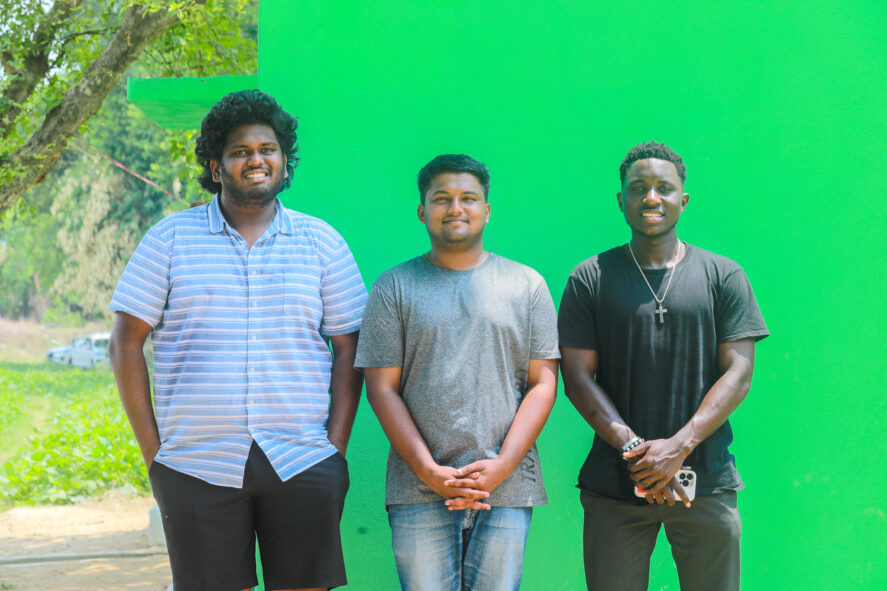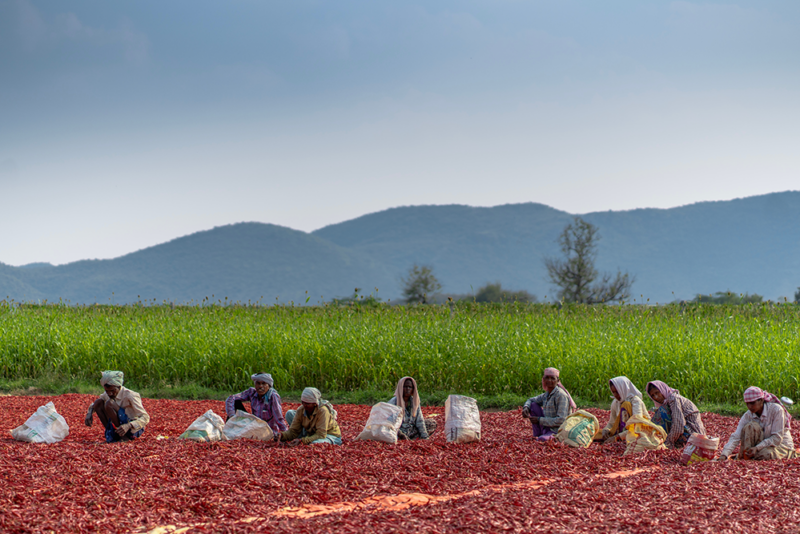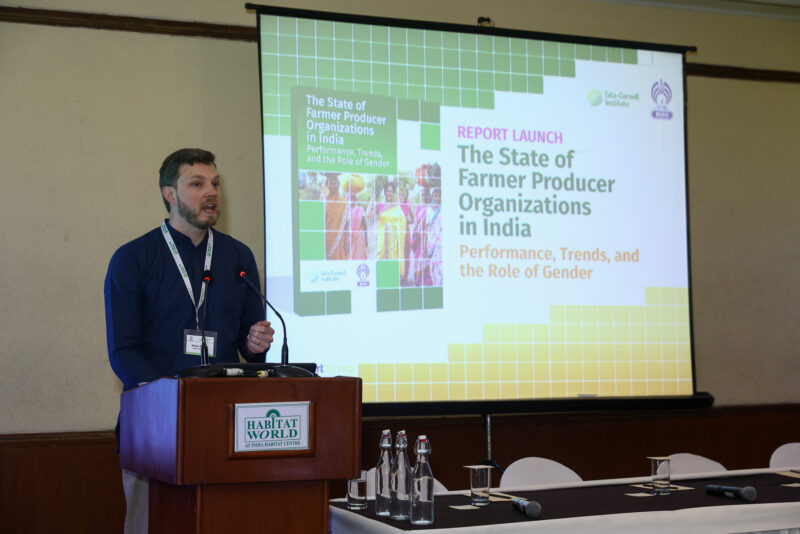Selecting the Best AI Search Tool for the FPO Platform for India

When I first heard about the Tata-Cornell Institute’s FPO Platform for India, I wasn’t entirely sure what to expect. I knew it had something to do with farmer producer organizations (FPOs) and helping improve agricultural value chains, but I kept wondering, how do we actually connect a farmer in a remote village to the bigger network of FPOs? How can someone sitting hundreds of kilometers away discover, learn about, and engage with an FPO they’ve never heard of before?
The idea felt ambitious—almost impossible. But that changed the moment I saw the data.
As a TCI intern working on upgrades to its FPO Platform for India, I was given access to the early version of the data dashboard. I remember just sitting there, amazed. In front of me was a massive dataset: over 44,000 FPOs promoted since 2003. I could filter by state, district, year of incorporation, crops, compliance status and even financials. It wasn’t just a spreadsheet—it was a living, breathing map of India’s FPOs.
What struck me even more was that the platform wasn’t just about data. It was about connectivity. Each FPO profile offered a snapshot of the organization—its name, incorporation year, activity status, financial health and operational details. Users could explore, compare, and eventually connect with FPOs through this interface. It transformed what used to be fragmented records into a unified, searchable system.
At that moment, the vision behind the FPO Platform clicked for me: to bring visibility, accessibility, and empowerment to the vast and growing network of India’s smallholder-driven farmer collectives. Whether you’re a policymaker, a buyer, a service provider or another FPO—you now have a window into this ecosystem.
The search challenge
But one big question remained: How would people find what they’re looking for in such a huge dataset—especially if they don’t know exactly what filters to use?
That’s when the real challenge of my internship began: making the platform smarter with artificial intelligence (AI)-powered search.
When Dietrich Bouma, the research support specialist I was working with, asked me to find the best AI solution for our platform, I knew there would be a learning curve. I started by asking a basic but important question—what kind of AI do we actually need? Is it a large language model? A keyword engine? Something in between?
After several internal discussions and some deep dives into AI literature, we focused our attention on natural language processing (NLP). NLP helps computers understand how humans speak and write, allowing them to process queries like, “FPOs growing turmeric in Telangana with active financials,” and deliver useful results.
It was the perfect fit for our platform. India is incredibly diverse, and the way people search—across different regions, dialects, and priorities—is just as varied. NLP would allow us to build a search experience that felt intuitive, no matter who the user was or how they phrased their question.
Choosing an AI model
From there, I conducted an extensive evaluation of 10 different AI-powered search tools. I created a comparative spreadsheet with details like pricing, NLP capabilities, customization, scalability, and how well they aligned with our platform’s goals. Some options looked promising but were too complex to implement quickly.
After weeks of research, meetings, and internal reviews, we ultimately decided to go with Algolia. It provided robust NLP support and was relatively easy to implement. I wrote a detailed internal report explaining how Algolia works, how it could be configured for our use case, and what our team needed to know to move forward.
The process wasn’t without challenges. Budget constraints, API limitations and integration logistics all had to be addressed. I coordinated with companies, scheduled demo calls and worked closely with developers and leadership to make sure the solution wasn’t just good, but the right fit for our platform and for the farmers it would serve.
The power of technology
Looking back, this experience was more than just an assignment. It was a chance to apply what I know—and stretch far beyond that—to support something meaningful. I feel incredibly proud to have contributed to a tool that may help thousands of FPOs grow, connect and thrive. And most of all, I’m grateful for the opportunity to give back to the country I was raised in, even in this small way.
This internship taught me that technology alone doesn’t change lives—but technology in the hands of the right people, with the right vision, absolutely can. I’m thankful to the entire TCI team for guiding me, supporting me and showing me what impact looks like—one search bar at a time.
Sriramulu Modadugula is a 2025 TCI summer intern. He is a junior at Cornell University’s College of Agriculture and Life Sciences, where he studies information science.
Featured image: Sriramulu Modadugula (left) poses for a photo with TCI associate researcher Bharath Chandran C (center) and summer intern Elie Ntakirutimana (right) in Bihar, India. (Photo by TCI)





